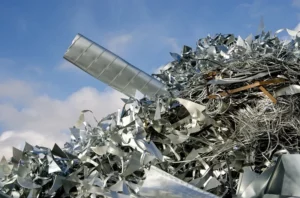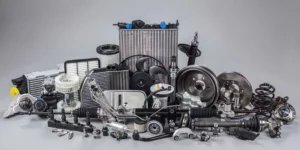With an increasing focus on environmental responsibility, many industries have sprung up that provide options for the recycling and reuse of many items that have outlived their functional lifespans. For example, many items rendered from metal can be scrapped and recycled through a recycling scrap yard in Montcalm, MI, giving new life to materials that may have otherwise been disposed of.
The mining, processing, and fabrication of metals takes a great deal of energy, and recycling those same metals use only a fraction of the resources that would normally be required to mine and process new metal. Also, recycling scrap metal through local scrap yards in Montcalm, MI, keeps valuable metal from ending up in landfills, where it takes up space. Sustainability is about preserving the earth and its resources for future generations. Recycling through a metal scrap yard also reduces society’s carbon footprint and limits the need for extensive mining and processing. Continue reading to learn more about the ways that metal recycling through a salvage yard in Montcalm, MI, can help achieve sustainability and preserve the environment.
Resource Sustainability
 With an increasing global population, resource sustainability has become more important than ever before. Natural resources such as metals are not unlimited, and therefore, it’s critical that they are reused whenever possible. Recycling metal can give new life to old products and keep already-processed resources in use. For example, re-using a single ton of steel saves 2,500 pounds of iron ore, 1,400 pounds of coal, and 120 pounds of limestone. There is no limit to the number of times aluminum can be recycled, and steel can be reshaped from one product to another through multiple rounds of recycling without any change in its quality. Also, recycling leads to less fuel, coal, natural gas, and biological material that must be burned to generate the energy used in processing. When we recycle the metals that are already in circulation, we slow the use of raw natural resources and preserve them for future generations.
With an increasing global population, resource sustainability has become more important than ever before. Natural resources such as metals are not unlimited, and therefore, it’s critical that they are reused whenever possible. Recycling metal can give new life to old products and keep already-processed resources in use. For example, re-using a single ton of steel saves 2,500 pounds of iron ore, 1,400 pounds of coal, and 120 pounds of limestone. There is no limit to the number of times aluminum can be recycled, and steel can be reshaped from one product to another through multiple rounds of recycling without any change in its quality. Also, recycling leads to less fuel, coal, natural gas, and biological material that must be burned to generate the energy used in processing. When we recycle the metals that are already in circulation, we slow the use of raw natural resources and preserve them for future generations.
Energy Sustainability
The use of energy makes a tremendous impact on the cost of producing metal, and it can also make a dramatic impact on the environment by introducing carbon into the atmosphere. When raw ores are mined, smelted, and processed into usable metals, a great deal of energy is consumed. That energy is often generated from the burning of coal, natural gas, or biological matter such as wood. Those sources of energy increase the amount of carbon in the atmosphere. Recycling uses a fraction of the energy used to convert raw ore to metal. For example, recycling a single aluminum can saves enough energy to run a standard television for approximately three hours.
Economic Sustainability
 Recycling has become a thriving business as more people understand the benefits of using resources and achieving sustainability. Recycling can be done at the community level or on an international scale, meaning, the economic impact of the metal recycling industry is significant. Recycling employs thousands of people, and it can help boost the employment rates by providing well-paying, green jobs that have a positive impact on the economy.
Recycling has become a thriving business as more people understand the benefits of using resources and achieving sustainability. Recycling can be done at the community level or on an international scale, meaning, the economic impact of the metal recycling industry is significant. Recycling employs thousands of people, and it can help boost the employment rates by providing well-paying, green jobs that have a positive impact on the economy.
Landfill Sustainability
The disposal of junk requires a tremendous amount of space, and with an increasing population, land is at a premium. Landfill space is better used to support life through other means like farming and housing. Decreasing the need for land to dispose of metal scrap is an important part of sustainability. Many appliances and large items made of metals such as vehicles can take of a lot of space. By recycling that junk metal into a reusable resource, you can keep landfill space to a minimum. It will also protect the environment preventing soil and groundwater from being contaminated by rusty metal.
Metal recycling through a local scrapyard is one of the keys to achieving sustainability for future generations. There’s simply no reason not to convert scrap metal into a usable resource that can benefit both the present and future generations. To learn more about recycling metal scrap and its role in sustainability, visit Fair Salvage Company at https://www.fairsalvage.com/montcalm-division.html.
